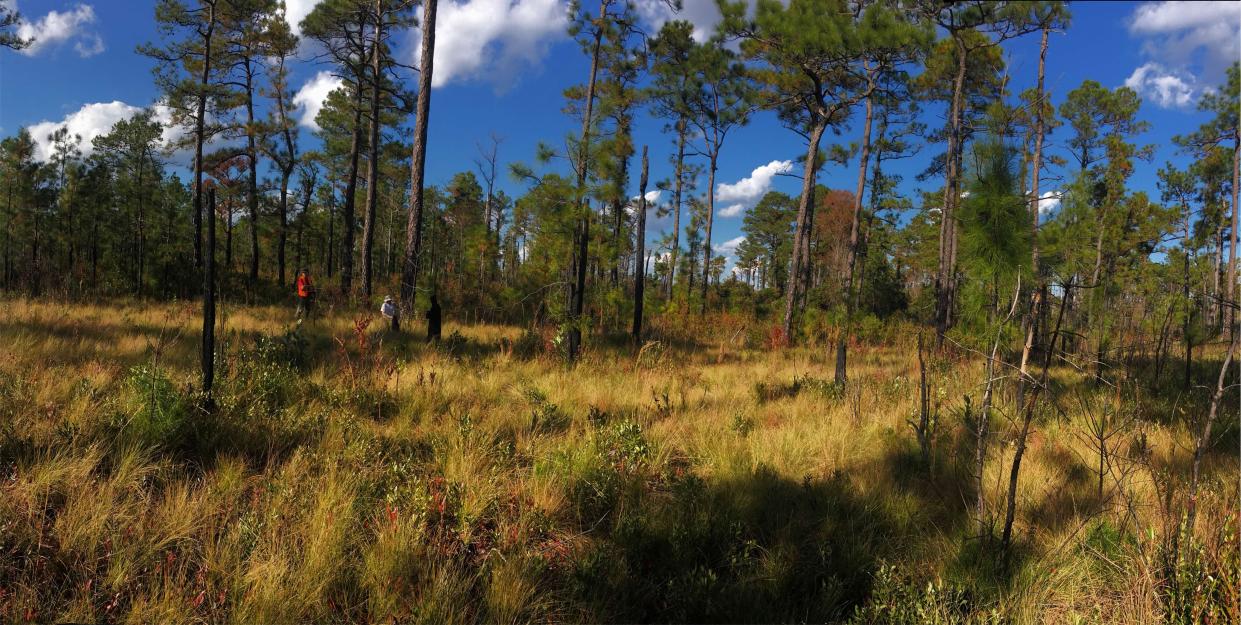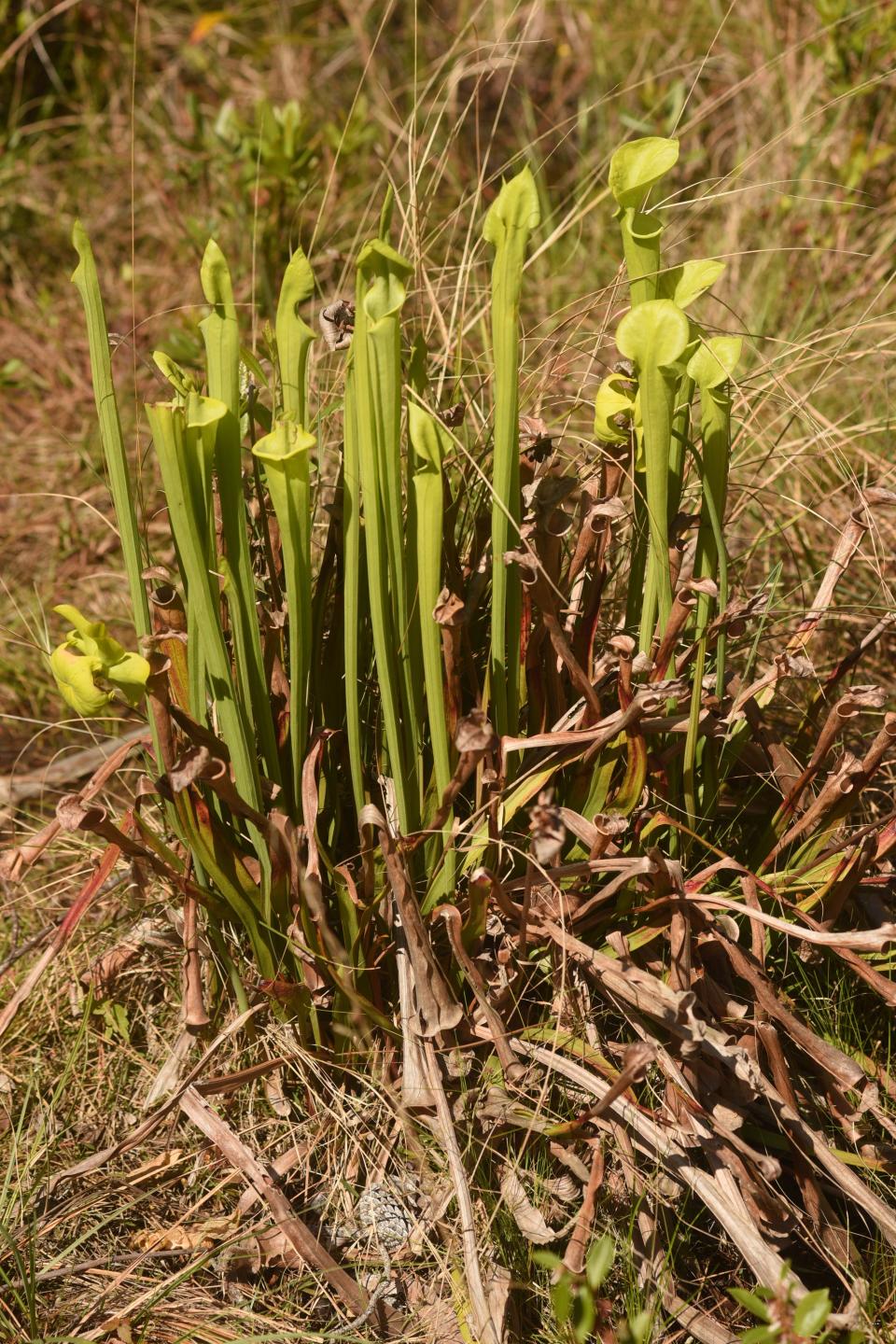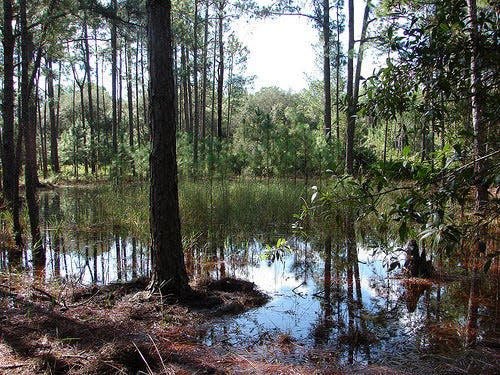Gov. Cooper wants to protect millions of acres of NC forests, wetlands. Is it feasible?

- Oops!Something went wrong.Please try again later.
Earlier this month, Gov. Roy Cooper signed an executive order laying out an aggressive plan to conserve, restore and grow the state's natural resources, including forests, wetlands and urban treescapes.
“As our state continues to grow, we must be mindful to conserve and protect our natural resources and this historic executive order sets clear goals and puts a plan in place that will help us leave our state better than we found it for generations to come,” the governor said in a statement.
But the order sets a deadline of 2040, well after Cooper leaves office in January, and would require the support of future administrations. It also requires the participation of private partners and other governmental agencies, both local and federal, to meet its ambitious goals.
So just how realistic is the million-acre conservation initiatives proposal?
What Executive Order 305 says
The order sets aggressive goals when it comes to increasing North Carolina's amount of protected greenspaces over the next two decades when measured against 2020 levels.
It calls for conserving an additional 1 million acres of natural lands, with a special focus on wetlands by 2040. The order also sets a goal of restoring or reforesting 1 million acres of state forests and wetlands, also by 2040.
The order notes the recent U.S. Supreme Court case that rolled back federal protections for isolated wetlands and the vote by the N.C. General Assembly, in which the GOP has supermajorities in both chambers, to override Democrat Cooper's veto of the N.C. Farm Bill, which also removed some state wetland protections.
The order also calls for the planting of 1 million trees in urban settings. Researchers fear the loss of urban tree canopies will lead to urban "heat islands" in many concrete-heavy city neighborhoods just as climate change fuels warming temperatures.
Finally, state agencies are required to work as much as they can under current rules to "protect, enhance and restore North Carolina's natural and working lands."
The order also directs the N.C. Department of Environmental Quality (DEQ) and other agencies to undertake several studies and surveys of the state's natural resources in the coming months.

'Bold action'
With North Carolina's population and increasing sprawl among the fastest-growing in the country, environmental groups praised Cooper's order − especially its focus on protecting wetlands.
David Kelly, state director for the Environmental Defense Fund, said the governor's "bold action" comes at a critical time as wetlands and other greenspaces face increased pressures from development and legislative actions to strip them of protections.
"Healthy wetlands offer an abundance of benefits to all North Carolinians," he said in a statement. "These ecosystems provide critical habitats for fish and wildlife and enable our state’s rich hunting and fishing traditions to thrive. They also act as a natural buffer to flooding − a challenge that so many of our communities, cities and towns face."
According to the U.S. Census, the state's population hit 10.84 million in 2023 and is forecast to balloon to 14 million by 2050.
"Governor Cooper’s conservation targets are laudable and far-sighted, and are critically needed in light of shortsighted actions by our state legislature and the U.S. Supreme Court,” said Erin Carey, interim state director of the N.C. Sierra Club Chapter, in a statement. "The long-term preservation of our wetlands is paramount."
But at least one group said that while Cooper's move was well intended, it didn't go far enough.
"Wetland forests keep our communities healthy sand safe," said Danna Smith, executive director of the Dogwood Alliance. "It is great to see the governor recognize the importance of protecting wetlands. For over a decade our wetland forests have been logged by the wood pellet industry. Unfortunately, the governor's executive order does not call out this threat."
POWER OF THE PEN: How Gov. Cooper's executive orders have driven a lot of NC's green agenda
How effective is an executive order?
While powerful tools that can use the full force of the bureaucracy to push forward initiatives, executive orders don't carry the weight of law.
With veto-proof Republican majorities in both chambers of the General Assembly, Cooper hasn't had a lot of ways to wield power or push his agenda. One way he has been able to do that, though, is through the use of executive orders.
The orders allow a president or governor to show his supporters that he's working to get something done, that he hears their concerns and realizes action is needed even if there are legislative impediments to getting a bill passed.
But, again, they aren't legally binding, and in a state like North Carolina where the legislature holds nearly all of the power, there's only so much a governor can do.
Case in point is Cooper's Executive Order 271 to get more electric trucks and busses on North Carolina highways starting in 2027. But the General Assembly included language in last year's budget banning the state from adopting the Advanced Clean Trucks Rule.

LESS GREEN: Plastic bags and EVs in the slow lane: What does NC's new budget mean for the environment?
What happens now?
State agencies will implement the governor's order through the rest of 2024.
A new governor, who takes office in January 2025, will then have the authority to continue the policy, tweak it, or scrap it. North Carolina
The policy of new leaders using a stroke of a pen to do away with executive orders of their predecessors isn't a rare occurrence. It's especially true if the new person coming into office is from a different political party.
Democratic President Biden, for example, passed a slew of executive orders on his first day in office in January 2021 to undue policies of his predecessor, Republican President Donald Trump. They included orders to re-engage with the World Health Organization, rejoining the Paris Agreement on Climate Change, rolling back moves by the Trump administration to shrink some national monuments, and re-activated a temporary moratorium on new oil and gas leasing in Alaska's Arctic National Wildlife Refuge.
Reporter Gareth McGrath can be reached at GMcGrath@Gannett.com or @GarethMcGrathSN on X/Twitter. This story was produced with financial support from the Green South Foundation and the Prentice Foundation. The USA TODAY Network maintains full editorial control of the work.
This article originally appeared on Wilmington StarNews: Gov. Cooper wants to protect millions of acres of NC forests, wetlands.

